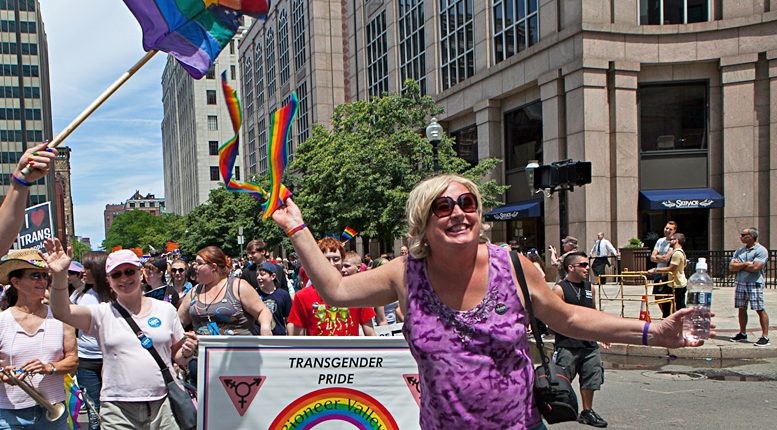By Deja Nicole Greenlaw*/TRT Columnist —
“Sticks and stones may break my bones, but names will never harm me.” Remember that chant from your childhood? It was first written in 1862 in The Christian Recorder, a publication of the African Methodist Episcopal Church, and it was meant to be good advice for victims of name-calling.
The advice was to ignore taunting. This may work in some situations, but when it’s directed to a trans person, it often doesn’t apply. Trans people may be called numerous names, many of which are very hurtful. I have personally been called faggot, he-she, shim, weirdo, and an abomination, among other names. You might ask other trans people what they have been called. It’s awful. It’s bad enough living as a trans person, but to add hurtful names to the mix may make it unbearable at times.
What do you do when someone calls you a name? Sometimes it’s from people in cars that are driving past you as you walk. Sometimes it’s heard from friends who tell you what others said about you. Neither of these times can lead to an immediate confrontation. Either the person has driven away, or the person is physically far away from you. You have time to absorb and reflect upon the name-calling without having to deal with the offender face-to-face. In some situations, however, the name-caller is standing right in front of you. What do you do in that case? The time I was called an abomination, I was standing face-to-face with my name-caller. I will tell you what I did.
I was getting ready to march in my first New York City Pride in 2005. I was with my best friend and it was her first NYC Pride march too. As we walked up Fifth Avenue to find a group to march with, we noticed protesters along the way. The protesters were mostly religious extremists who held signs that implored us to repent or suffer damnation in hell.
Most of the protestors were silent, but one of them decided to go after me and call me out. I just looked at him and tried to ignore him and his taunts, but he did get to me when he called me an abomination. I stopped, turned around, and looked him straight in the eye. He was about 20 feet away spouting some religious rhetoric and he was walking closer to me. Out of the corner of my eye, I spotted a police officer who was 30 feet away and beginning to take notice.
I saw the officer take a couple of steps towards us and get into a position to act if necessary. The name-caller was still carrying on and moving closer to me. Time seemed to slow down, and I began thinking about what I should do. I noticed that he was very angry and had a lot of energy. I sensed that he was ready to fight me. I did feel like taking a swing at him, but the police officer was now walking closer to the both of us. I envisioned being attacked and retaliating with a punch or two, and I knew this might lead to the both of us being arrested. I did not want to spend time in a NYC police station, I wanted to march in my first NYC Pride, so I knew that I had to somehow defuse the situation.
Since I was ready to march in the parade, I had a rainbow streamer rolled up in my right hand. As both the name-caller and the police officer were now walking faster towards me I flung my right hand in the air and let the streamer unfold. I put on my best smile and exclaimed, “Happy Pride!!” The police officer stopped walking towards me and began laughing as did some onlookers who noticed the situation. The name-caller stopped dead in his tracks with a very confused look on his face. A friend called him back to his protest position and my best friend and I continued our search for a group to join. From that experience I learned to think and walk the high road, smile my best smile, and take control of the situation with a happy cheer. It worked, but it’s a startling reminder of the things we must deal with when we are trans people.
*Deja Nicole Greenlaw is retired from 3M and has three children and two grandchildren.







